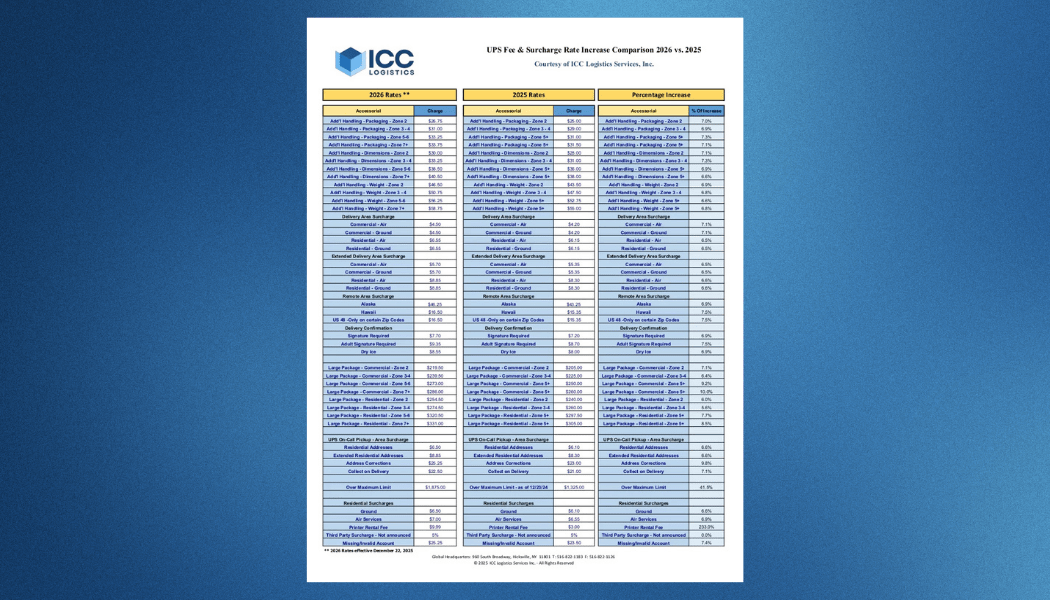As we enter 2021, the real question that importers from the Far East MUST ask themselves is, how can we possibly continue to pay these skyrocketing ocean rates? The answer of course is, what choice do they have. But a much deeper question is how will they or should they handle the budget process for 2021.
Budgets are typically created for the upcoming business year. In some cases they are based on the calendar year and in some cases they are formed to meet a fiscal year calendar instead. Regardless of the timing, setting a hard and fast number for a 12 month period is not going to work for 2021. It is clear that a monthly or quarterly budgeting process may be the best way to go in 2021. The following article written by Bill Mongelluzzo, Senior Editor at the Journal of Commerce provides some very interesting facts about the current, and we suspect the future ocean freight rate marketplace.
Premium surcharges send trans-Pac rates to record highs
Bill Mongelluzzo, Senior Editor | Jan 06, 2021 4:28PM EST
Vessel space and equipment are in such high demand at Asian ports that importers are paying as much as 50 percent higher than the already record spot-market rates just to get their shipments to the US in the next few weeks.
Spot rates in Asia-North America trade are about $4,000 per FEU to the West Coast and $5,000 per FEU to the East Coast, although carriers and freight forwarders say importers are paying as much as $6,000 per FEU to the West Coast and $8,000 per FEU to the East Coast when the cost of premium equipment and space guarantees are added to the base freight rate.
These extraordinary developments, which have been unfolding since last month during what should be a slack period in the eastbound trans-Pacific, illustrate the pressures retailers face to lock in equipment and vessel space as imports from Asia appear to be accelerating, rather than slowing down, during what should be a slack period.
Patrick Fay, president of the non-vessel-operating common carrier (NVO)/logistics provider BOC International, told JOC.com it is increasingly difficult to book shipments on vessels that will leave Asia before many factories there close for a week or two for the annual Lunar New Year holiday that falls on Feb. 12.
“There is no trans-Pacific space available prior to Chinese New Year other than what is currently booked/forecasted.
Every extra booking is being squeaked out as spot or premium on shortfalls/cancelations,” Fay said.
Carriers charging thousands of dollars for premium features
Most, if not all, carriers are charging space premium guarantees (SPGs) that total thousands of dollars to secure equipment and space on vessels leaving Asian load ports in the coming few weeks, said Jon Monroe, who serves as a consultant to NVOs.
The trans-Pacific carriers are collecting SPG premiums on their regularly scheduled weekly services, said Jon Monroe, who serves as a consultant to NVOs. Premium surcharges vary from carrier to carrier.
For example, a rate sheet provided by another NVO that covers 10 trans-Pacific lines lists premium rates that“protect space” ranging from $1,000 to $3,000 per FEU on top of the base freight rate.
Seven of those carriers listed premium service surcharges of $2,000 or higher.
An NVO who requested anonymity added that the spot rates listed on the Shanghai Containerized Freight Index and other indices of about $4,018 per FEU to the West Coast and $4,729 per FEU to the East Coast will not get most containers onto ships today at Asian ports.
Furthermore, the premiums, which are supposed to guarantee space and equipment, may do no such thing, he said.
“Those guarantees have fallen away. All it does is get you to the front of the line,” the NVO said.
Another NVO who requested anonymity told JOC.com Tuesday he booked shipments this week from
Yantian to the ports of Los Angeles and Long Beach with all-inclusive rates of $5,615 per FEU on one carrier’s vessel and $6,300 per FEU on another carrier’s vessel.
He said he booked shipments from Ningbo to Savannah and New York-New Jersey for $8,155 per FEU.
Monroe explained that there are two types of premium charges beneficial cargo owners (BCOs) have access to in order to secure bookings in today’s tight market.
Some carriers such as Matson Navigation Co., CMA CGM, and Zim Integrated Shipping Services operate weekly expedited strings that guarantee customers equipment and vessel space in Asia, rapid ocean transit times, and priority cargo handling at the US receiving port.
Those expedited services call in Los Angeles-Long Beach. While other lines do not offer dedicated weekly expedited services, most, if not all trans-Pacific carriers, offer SPG features on their regularly scheduled weekly services for a premium price, Monroe said. Premium surcharges on these services vary from carrier to carrier.
For example, a rate sheet provided by another NVO who requested anonymity lists premium rates that “protect space” ranging from $1,000 to $3,000 per FEU on top of the base freight rate. Seven of the 10 carriers on the rate sheet listed premium service surcharges of $2,000 or higher.
Blank sailings for Lunar New Year far below normal
Trans-Pacific carriers appear to be doing their best to provide as much capacity as possible through the week of Lunar New Year and the two subsequent weeks when a number of factories in Asia are expected to be closed. Carriers this Lunar New Year have announced only five blank sailings, two to the East Coast and three to the West Coast.
To match historical capacity reductions during the three-week Lunar New Year period, trans-Pacific carriers would have to blank an additional 48 to 56 sailings, Alan Murphy, CEO of Sea-Intelligence Maritime Analysis, said in his Sunday Spotlight this week.
In yet another anomaly this year, NVOs and industry analysts are reporting that some factories in Asia may remain at least partially open during the Lunar New Year holiday.
The Sunday Spotlight cited “scattered reports of some Chinese factories offering bonuses to workers to work through the holidays to support the demand boom.”
In fact, NVOs report there is such a backlog of already-manufactured merchandise taking up space on factory floors in Asia that just clearing out that freight may consume existing vessel space for weeks to come.
Fay said that this year the traditional drop in imports from Asia in the weeks immediately following the Lunar New Year will be muted at best. “We normally get a slack period, but that is not happening this year,” he said.
Contact Bill Mongelluzzo at bill.mongelluzzo@ihsmarkit.com and follow him on Twitter: @billmongelluzzo.



 to receive our FREE white papers:
to receive our FREE white papers: